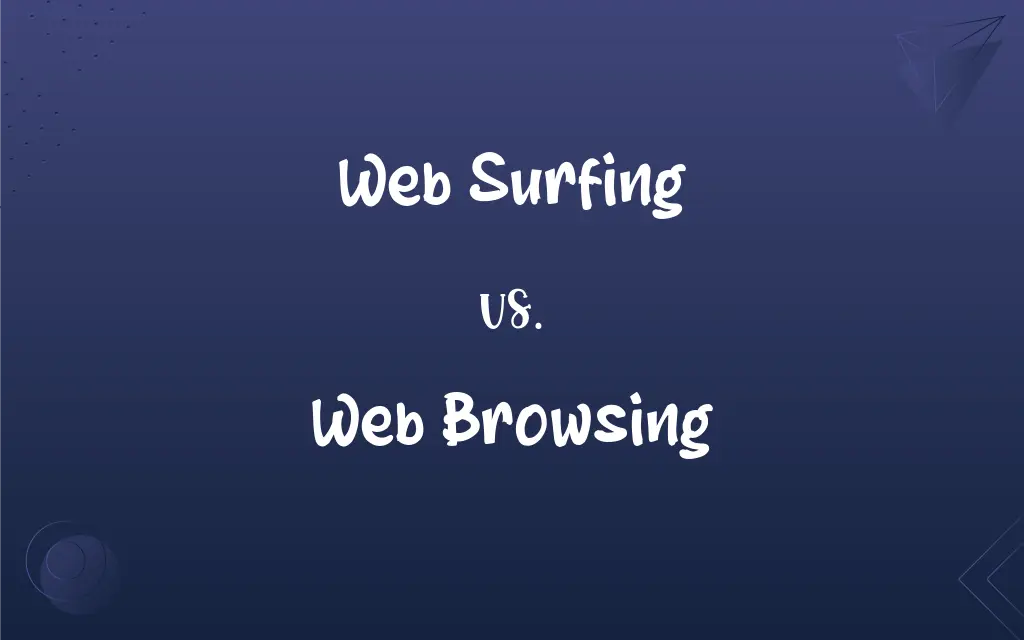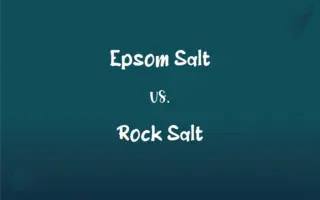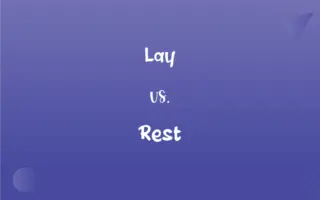Web Surfing vs. Web Browsing: What's the Difference?
Edited by Aimie Carlson || By Janet White || Published on January 12, 2024
Web surfing refers to casually navigating through various websites without a specific purpose, while web browsing is the act of using a web browser to access and view websites with a more focused approach.

Key Differences
Web surfing is often characterized by a more leisurely, random exploration of the internet. It involves casually moving from one website to another, often led by curiosity or for entertainment. In contrast, web browsing is a more purpose-driven act of navigating the web, typically with a specific goal or search in mind.
Surfing the web is akin to channel surfing on television; it's a way to explore various topics and websites without a predetermined destination. Web browsing, however, is like using a library catalog; it's a methodical approach to finding specific information or visiting predetermined sites.
Web surfing can lead to discovering new content, websites, or online resources by chance or through loosely related links. Web browsing, on the other hand, often involves using search engines or directly entering website URLs to access particular information or services.
The term 'web surfing' evokes a sense of freedom and randomness, suggesting an open-ended journey through the web. Conversely, 'web browsing' implies a more structured and focused interaction with the internet, often utilizing bookmarks, history, and targeted searches.
In web surfing, the user may spend varying amounts of time on different websites, driven by interest or intrigue. In web browsing, the duration and choice of websites are usually more intentional and directed towards fulfilling a specific need or completing a task.
ADVERTISEMENT
Comparison Chart
Purpose
Casual and leisurely
Purposeful and focused
Approach
Random and exploratory
Methodical and goal-oriented
Typical Activities
Randomly clicking links, exploring various topics
Using search engines, visiting specific websites
User Intent
Entertainment, curiosity
Information seeking, task completion
Navigation Style
Haphazard, no specific plan
Structured, with specific destinations
ADVERTISEMENT
Web Surfing and Web Browsing Definitions
Web Surfing
Driven by curiosity and intrigue.
Her web surfing often leads to unexpected learning experiences.
Web Browsing
Using the internet to complete specific tasks.
Web browsing helps her find recipes for dinner quickly.
Web Surfing
A leisurely activity to pass time online.
Web surfing is her favorite way to relax after work.
Web Browsing
Following a structured approach to internet use.
He relies on web browsing for daily news updates.
Web Surfing
Browsing the internet at random.
During his web surfing, he found a fascinating online community.
Web Browsing
Concentrated and goal-directed internet use.
Her web browsing sessions are short but productive.
Web Surfing
Randomly navigating through websites for leisure.
He spent the evening web surfing and discovered a new hobby.
Web Browsing
Actively seeking specific information online.
His web browsing is focused on finding the best tech reviews.
Web Surfing
Exploring the internet without a specific goal.
Web surfing led her to an interesting blog about travel.
Web Browsing
Using the internet with a specific purpose.
She uses web browsing to research for her assignments.
FAQs
What is web browsing?
It's accessing and viewing websites with a specific purpose.
What is web surfing?
It's casually navigating the web without a specific aim.
How focused is web browsing?
It's a focused activity, often with a clear goal.
What tools aid web browsing?
Search engines, bookmarks, and history tracking.
Do people web surf for fun?
Yes, it's often a leisurely and enjoyable activity.
Can web browsing be random?
Typically, it's more structured and purposeful.
Is web surfing purposeful?
Generally, it's more about leisure and exploration.
Can web surfing lead to new discoveries?
Yes, it's a great way to find new and unexpected content.
Is web browsing good for research?
Yes, it's ideal for targeted information seeking.
What devices are used for web surfing?
Computers, smartphones, tablets – any device with internet.
Can web surfing be educational?
Yes, one can learn a lot through random exploration.
How do people start web browsing?
Often by entering a query in a search engine or a specific URL.
Do professionals use web browsing?
Yes, for research, information gathering, and specific tasks.
Is web surfing time-consuming?
It can be, as it often involves exploring various topics.
Is web surfing a modern term?
It's been around since the early days of the internet.
Can web surfing be goal-oriented?
It's usually more about exploration than specific goals.
Is web browsing efficient?
Yes, particularly for finding specific information quickly.
What's a common outcome of web surfing?
Discovering a wide range of topics and websites.
Does web browsing require internet skills?
Basic internet navigation skills enhance browsing efficiency.
Is web browsing quick?
It can be, especially when seeking specific information.
About Author
Written by
Janet WhiteJanet White has been an esteemed writer and blogger for Difference Wiki. Holding a Master's degree in Science and Medical Journalism from the prestigious Boston University, she has consistently demonstrated her expertise and passion for her field. When she's not immersed in her work, Janet relishes her time exercising, delving into a good book, and cherishing moments with friends and family.
Edited by
Aimie CarlsonAimie Carlson, holding a master's degree in English literature, is a fervent English language enthusiast. She lends her writing talents to Difference Wiki, a prominent website that specializes in comparisons, offering readers insightful analyses that both captivate and inform.































































